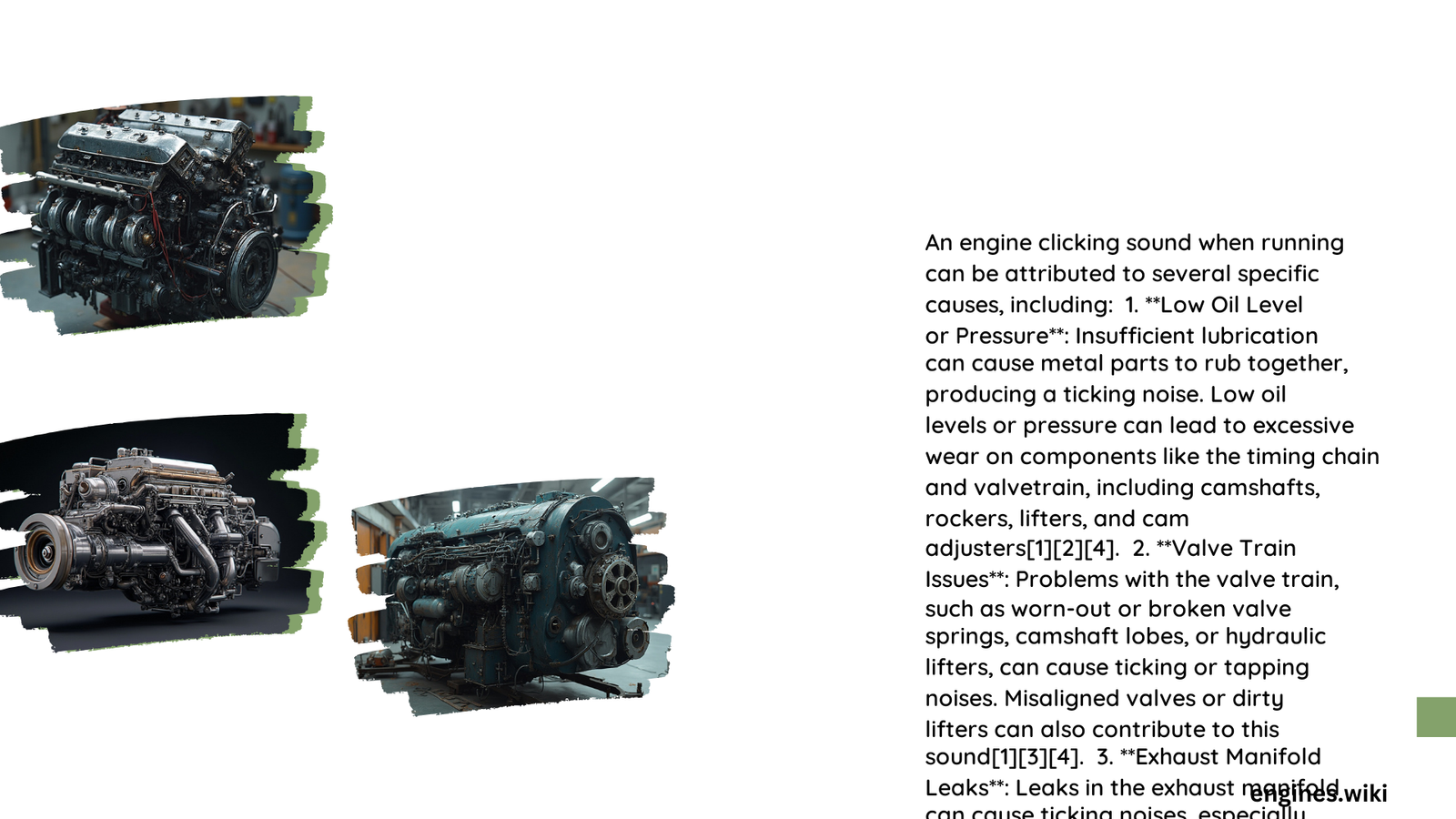Engine Clicking Sound When Running: A Comprehensive Diagnostic Approach
Quick Overview
An engine clicking sound when running can be a critical indicator of underlying mechanical issues that require immediate attention. These sounds often signal potential problems with lubrication, component wear, or mechanical stress within your vehicle’s engine system. Understanding the source and implications of these noises is crucial for preventing extensive and expensive engine damage.
What Causes Engine Clicking Sounds?
Why Do Engines Produce Clicking Noises?
Engine clicking sounds can emerge from multiple sources, each representing a unique mechanical challenge:
- Lubrication Challenges
- Insufficient oil levels
- Low oil pressure
-
Inadequate oil circulation
-
Mechanical Component Wear
- Deteriorated engine bearings
- Worn valvetrain components
- Damaged connecting rod mechanisms
How to Identify the Source of Clicking?
| Sound Characteristic | Potential Cause | Urgency Level |
|---|---|---|
| Rhythmic Top-End Clicking | Valvetrain Issues | Moderate |
| Consistent Low-End Ticking | Rod Bearing Wear | High |
| Intermittent Clicking | Exhaust Leak | Low-Moderate |
Diagnostic Strategies for Engine Clicking
What Should You Check First?
Critical Initial Inspection Steps:
– Verify engine oil level and quality
– Check oil pressure using diagnostic tools
– Listen carefully to pinpoint sound location
– Inspect related mechanical components
Can You Diagnose Without Professional Tools?
While some diagnostics require specialized equipment, you can perform preliminary checks:
- Use a mechanic’s stethoscope
- Perform visual component inspections
- Monitor sound characteristics during different engine conditions
- Check for visible wear or damage
Potential Repair Solutions
How Much Will Repairs Cost?
Repair costs vary significantly based on the underlying issue:
- Minor Repairs
- Oil system maintenance: $50-$300
-
Spark plug replacement: $100-$250
-
Major Repairs
- Valvetrain component replacement: $500-$2,000
- Complete engine overhaul: $3,000-$7,000
Prevention and Maintenance Tips
How to Prevent Future Clicking Sounds?
- Maintain regular oil changes
- Use high-quality engine lubricants
- Perform routine mechanical inspections
- Address small issues before they escalate
Warning Signs Requiring Immediate Attention
Red Flag Indicators:
– Persistent clicking sounds
– Increasing noise volume
– Accompanied performance degradation
– Metallic grinding sensations
Technical Recommendations
When Should You Seek Professional Help?
- Sounds persist after basic maintenance
- Complex mechanical symptoms emerge
- Potential internal engine component failure
- Lack of diagnostic equipment or expertise
Conclusion
Engine clicking sounds serve as critical communication from your vehicle’s mechanical system. Prompt, informed action can prevent catastrophic engine failure and expensive repairs.

